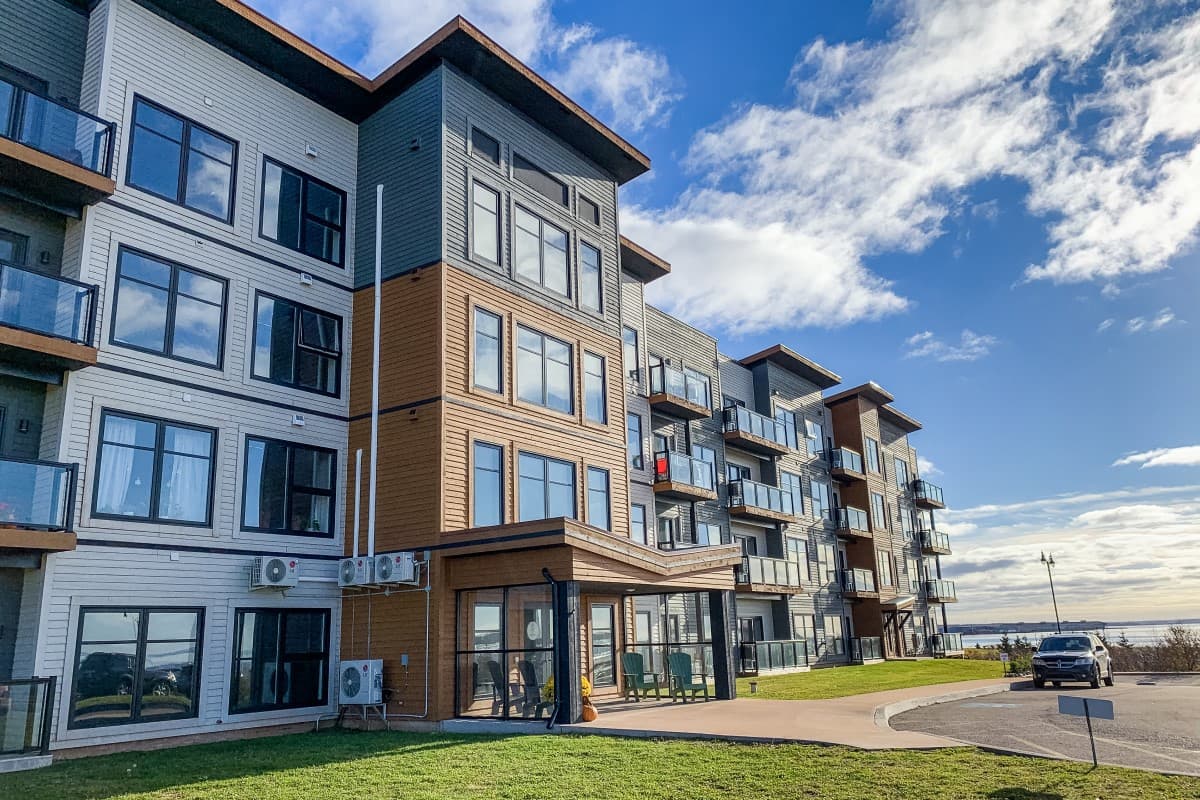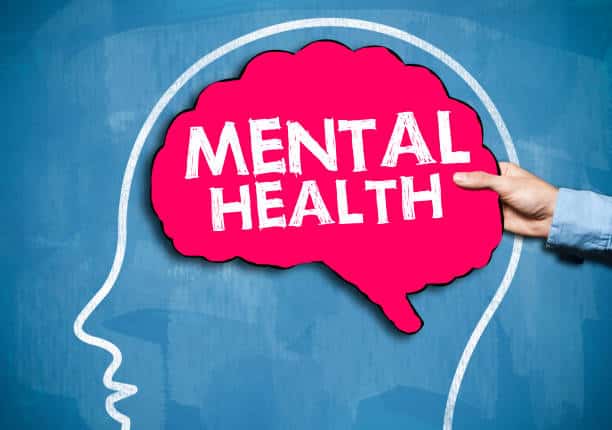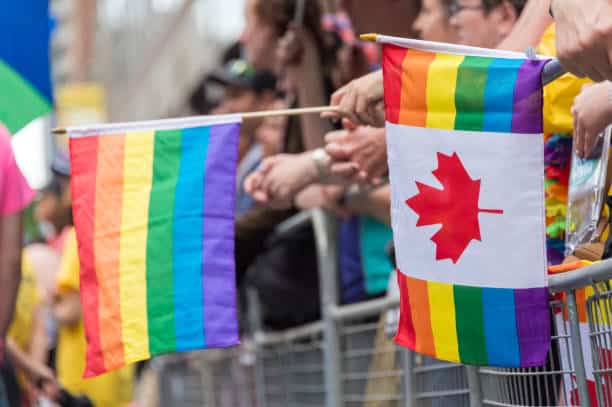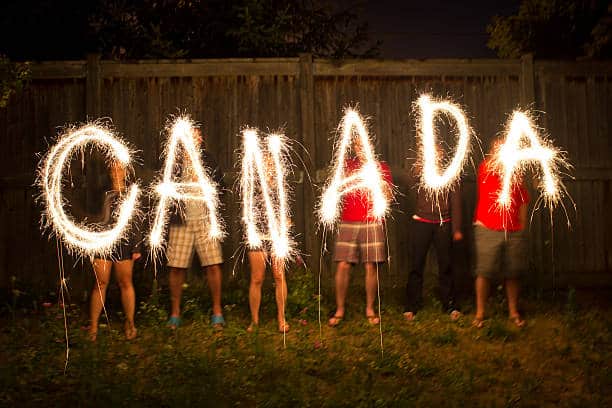Finding Housing in Canada
When you first arrive in Canada, you will need to stay somewhere temporarily until you are able to find more permanent housing. This temporary housing might be in the home of a settlement team member. Your settlement team will work with you to find housing that is appropriate for your budget and is in a location that is suitable.
For most newcomers, your first home will likely be rented; it is important to know that whether you rent or buy, the cost of housing in large Canadian cities such as Toronto and Vancouver is very expensive. The Canada Mortgage and Housing Corporation (CMHC), Canada’s national housing agency, has an excellent overall guide to housing in Canada called “Housing for Newcomers”. The Canadian government also has a good website on what to know before renting a home.
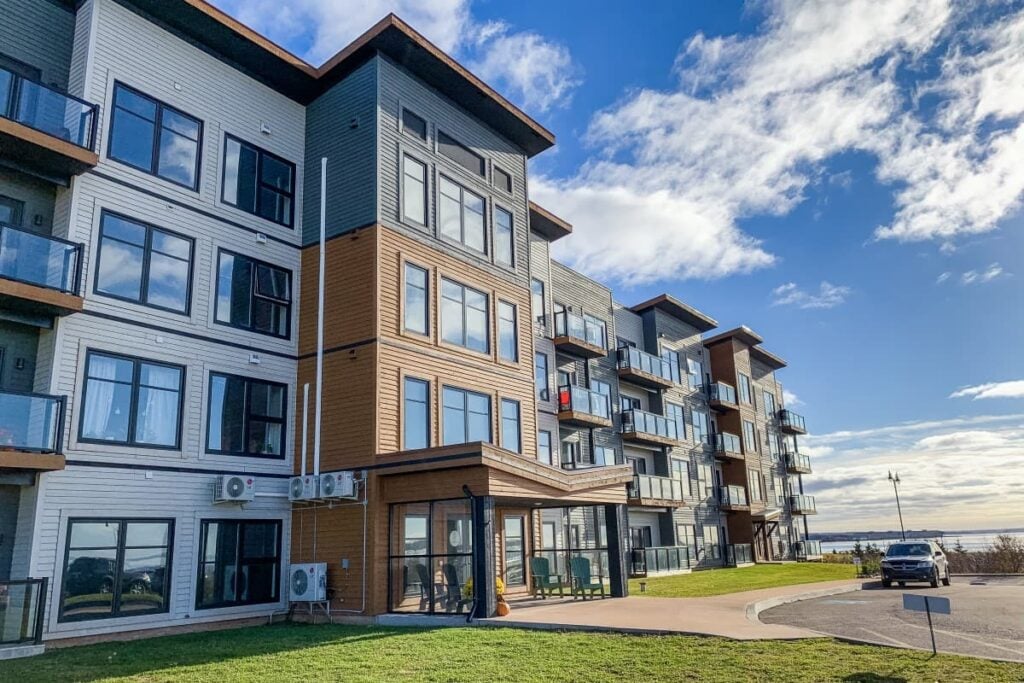
Types of Rental Housing in Canada
There are many types of rental housing available in Canada.
- Apartments: These can include a “bachelor” or “studio” apartment which has a single room or apartments that have separate bedrooms and living spaces;
- Detached Single Family Home: A home that is occupied by only one renter and has space around the home. These are generally more private but more costly than other options. A “semi-detached” home is one that shares a wall with another home;
- Duplexes or Triplexes: A house that is divided into two separate housing units is a duplex. If it is divided into three units it is a triplex. Often the owner of the house will live in one unit and rent out the others.
- Townhouse: These are (usually) identical housing units that share walls with other housing units in a row. Each housing unit has a separate entrance. Townhouses often have a small yard in the rear of the unit;
- Rooms in a house: Sometimes you may find a room for rent in a larger private home. In this case you may share a bath or a kitchen with other members of the house.
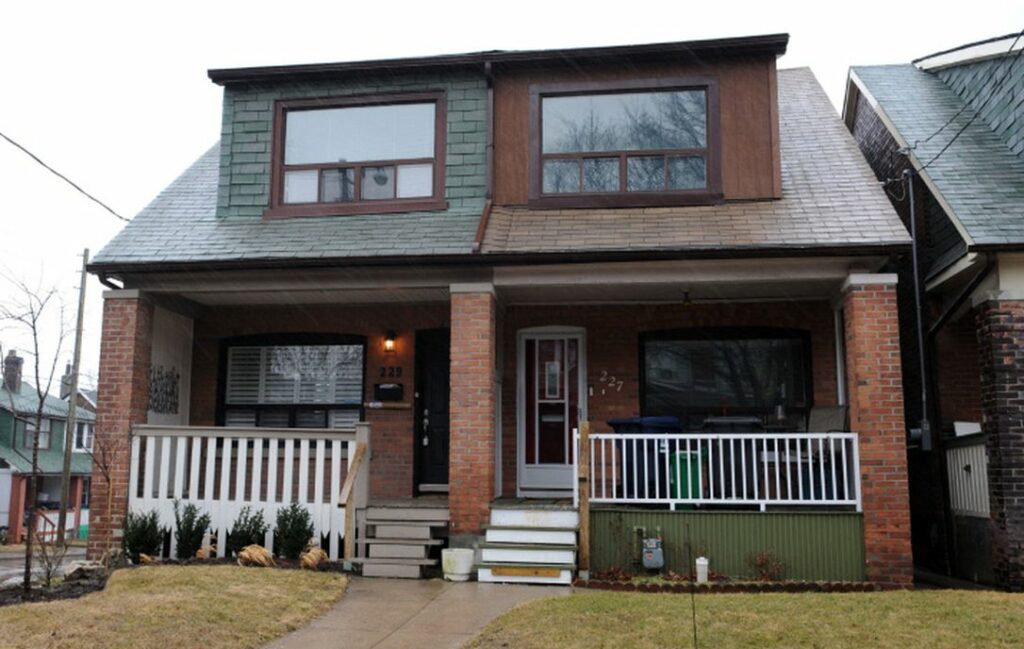
“Landlords” and “Tenants”
The person who owns the house or building that you live in is the “landlord”. In some cases the landlord may have a property manager or other person who will act in their place; this often happens, for example, in large apartment buildings. The person who rents the home or building – YOU – are the “tenant”. Each province/territory has landlord and tenant legislation that varies, however in general, these are the obligations of both:
Landlords: Collect the rent; make sure that your building is safe and things are repaired in a timely fashion; provide everything that comes with your apartment (such as a stove or refrigerator); take care of and pay for repairs in your rental unit when something breaks.
Tenants: Pay rent on time; maintain your home well and keep it clean; let the landlord know when things need to be repaired; allow the landlord to enter if they are carrying out repairs or showing the apartment to potential renters, as long as they have given you advance notice of the visit.
Questions to Ask Before You Rent
Before you rent a property, there are some important questions that you should ask.
- How much is the rent? How often do I pay it?
- Is there a security deposit? This is a sum of money you will pay when you first rent the apartment in addition to your rent. The landlord will keep this money in case you do not pay rent or damage the apartment. If the apartment is in good condition when you leave then the landlord will return the full amount of the security deposit to you.
- Are utilities included? Utilities are things like hydro (electricity), water, cable and internet.
- Are there laundry facilities available in the building? Typically an apartment building will have shared washing machines and dryers that will accept coins or a pre-paid card.
- If you have a car, is there parking available and if so, is it an additional cost?
- Are pets or smoking allowed in the apartment? Although smoking is a legal activity in Canada, landlords are allowed to ban smoking in rental agreements.
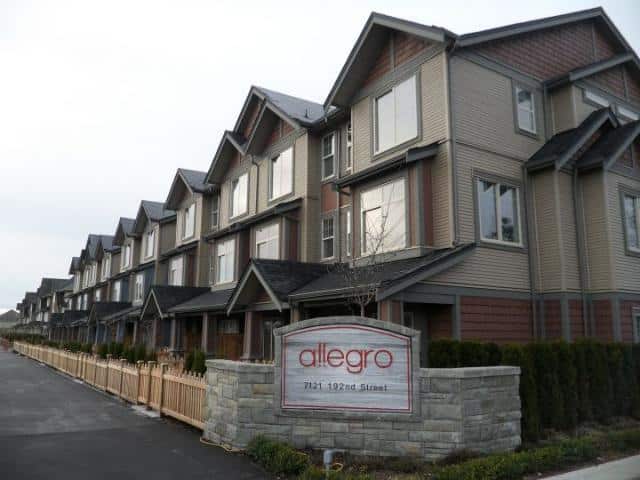
What Documents Do I Need to Rent?
Before they rent to you, landlords will ask for certain documentation and information, and you may be asked to fill out an application. Some of the documents landlords usually request include reference letters from people who know you, employment letters from your employer that indicates your salary, bank statements to reflect your financial standing and credit history checks. While documents such as these are often difficult to obtain for newcomers, settlement agencies or a Sponsorship Agreement Holder will often write a letter of reference.
Signing a Lease
A “lease” is a written document signed by both you and your landlord that explains everything that you and the landlord have agreed to. It is a legal document, so it is important that you understand everything written in it. Most leases will include:
- Your name and contact details along with those of your landlord;
- The address of the location you are renting;
- The monthly rent you have agreed to pay;
- The date in the month when the rent is due (for example the first or last day of the month);
- The length of the rental period (for ex., most will be one year);
- The conditions under which you can end the lease;
- What you must do to maintain the apartment;
- Any restrictions (such as smoking or pets);
- Details on how and when the landlord can enter your apartment;
- How to make changes to the lease or resolve any problems.
Make sure to get a hard (printed) copy of the lease after it has been signed by both you and your landlord. This is an important document and may also be requested when you apply for provincial healthcare coverage, if you enrol a child in school, and so on.
Where to find rental housing
Before you begin looking for rental housing, you will need to think about how much you can afford to pay per month, how many rooms you need, and where you want to be located. In larger cities such as Toronto or Vancouver, the rent is cheaper the farther out you go from the center of the city. However, neighbourhoods that are close to jobs, schools and public transit may save you time and money in the end.
There are many places where you can look for rental units, and your settlement team will work with you to find a place to live. Some good places to start your search are (1) local community or ethnic newspapers; (2) local rental websites (see below for suggestions by area); (3) settlement agencies; and (4) bulletin boards in local grocery stores, cafes, shops or community centres.
You can also use local websites to find a roommate. Due to the expensive costs of rent in Canada, sharing a place with one or more roommates is a common practice in Canada, especially for students and newcomers. There are many ways you can look for possible roommates, including websites such as Roomster and Roomie Match.
Subsidized Housing
Subsidized housing is when you receive help paying your rent from the federal government or a private corporation. It may also be called “social housing” or “community housing”. The amount that you pay is determined by your income. There are different provincial subsidized housing programs in Canada. Only people below a certain income level can apply, however, even if you are eligible, there are very long waiting lists to receive subsidized housing due to the high demand. For more information about housing programs available check this list:
- Income, housing and employment supports in Alberta
- BC Housing
- Manitoba Housing
- Affordable housing in Ontario
- Saskatchewan Housing Corporation
- Rent-Geared-to-Income Subsidy in Toronto
Housing Resources By Province
Alberta
- Calgary Real Estate Classifieds – Apartments, Condos & Homes for Rent/Sale
- Calgary Rent/Buy/Sell a room/apartment/house/home/condos/property
- Calgary Housing, Rooms, Apartments, Sublets
- Edmonton Rent/Buy/Sell a room/apartment/house/condo/property/flat/roommate
- Edmonton + Area Rental Listings
- Edmonton Places For Rent
- Edmonton Apartments, Houses, Rooms For Rent
British Columbia
- Housing and Sublets in Vancouver (rentals)
- Vancouver – Rent Apartments Houses Rooms
- Rent A Home – Vancouver
- Vancouver Rentals & Roommates
- VANCOUVER | Places For Rent
- Vancouver Rentals (British Columbia)
- Vancouver apartments/houses for rent/rentals/roommates/roomshare/liv.rent
- Victoria, BC Affordable Housing Network
- Kelowna House, Apartment and Room Rentals
- Victoria Rentals (BC, Canada)
- All Rentals, Houses & Apartments in Surrey, Delta, White Rock, Langley
Manitoba
Ontario
- Rent Mississauga
- Toronto – Rooms for rent | Apartments Houses Rooms
- Apartments & Rooms for Rent Toronto
- Toronto Housing, Rooms, Apartments, Sublets
- Toronto Apartments/Rooms/Houses for Rent/Sale
- Toronto – Apartments for rent | Apartments Houses Rooms
- East Toronto Rental & Market
- Ontario Tenants Rights
- Ottawa Housing, Rooms, Flats, Apartments, Sublets
- Rooms For Rent,Housing,Apartments,Sublets,Roommate,Roomshare in Ottawa, CA
- Apartment Rentals OTTAWA
- Ottawa Rentals – Available and Wanted
- Ottawa/Gatineau House & Apartment For Rent/Sell
Saskatchewan
- Swift Current & Area Rentals.
- Swift Current and Area Rental Properties
- Saskatoon For Rent
- Regina House Rentals
